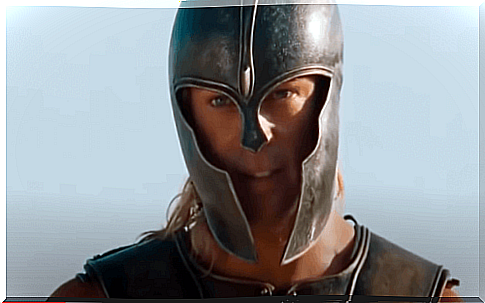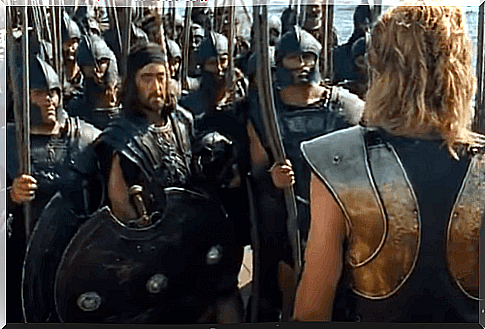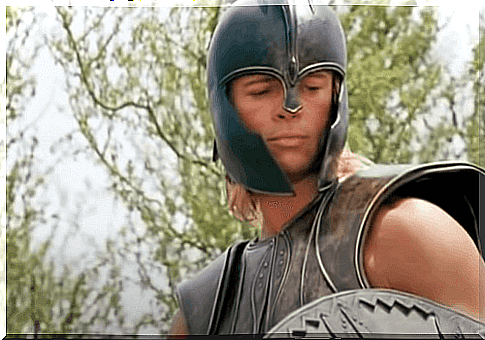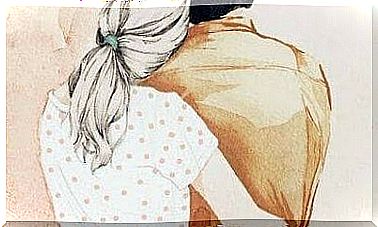Everything You Need To Know About The Myth Of Achilles

The myth of Achilles tells of the prototype of the epic hero, a mortal but almost perfect and practically invulnerable creature. This character was the most prominent figure in the Trojan War and one of the most important protagonists in the Iliad.
This warrior was considered the fastest of all men. The myth of Achilles points out that he was also called the most beautiful of all the heroes who participated in the Trojan War.
The myth of Achilles is incredibly important, so much so that it now takes part in the world of anatomy. The Achilles tendon, located on the back of the bone, is named in memory of this mythological hero who was worshiped in different regions of the ancient world.
The origin of the myth of Achilles
According to the myth of Achilles, this hero had a very special origin. His mother was Thetis, the sea nymph, daughter of Nerev, the old man in the sea, and endowed with unique beauty. Hera, Zeus’ wife, educated her. Despite this, Zeus himself claimed her. So did Neptune, who was the god and lord of the seas.
Myth says that the titan Prometheus gave Zeus an oracle, which gave a fearless prophecy. It said that Thetis would become pregnant and give birth to a son with great abilities and who would become so powerful that he would be able to take over his father’s rule. In the face of such a prophecy, Zeus and Poseidon gave up their interest in Thetis.
Furthermore, the beautiful nymph married Peleus, a mortal prince. From here, there are two different versions of the myth of Achilles. The most famous says that his mother knew that her son would become a great hero and wanted to make him immortal. To achieve this, she took him to the water of the Styx River (which led to hell) and lowered him there. However, she held him in the heel, making that area of his body vulnerable.
There is another version that says that Thetis anointed the son’s body with a divine substance called ambrosia, and then set him on fire to burn the deadly body parts. Her husband discovered her and took the child from her by force and caused his heels to char. After this incident, Thetis left the two.

A unique hero
As a child, Achilles showed how fast and strong he was. He also proved to be tough and eager for honor and violence. His most important teacher was Phoenix, a wise and courageous man. In childhood, Achilles met Patroclus, with whom he maintained a friendship for the rest of his life. He later became a disciple of the centaur Kheiron, which led him to complete his training.
To keep Achilles out of the war, his father sent him to the court of King Lycomedes, disguised as a woman. He was there for a while and conceived his only son Neoptolemus. Odysseus saw him and asked him to go to Troy to save Helena.
The myth of Achilles tells that his entry into the war showed his great abilities and made the enemies fear him. The stunts of this demigod became legendary, especially when he defeated Kyknos, son of Poseidon, and Troilos, son of Apollo.

The death of a hero
The Trojan War was long and violent. Achilles was the most feared and beautiful of all the warriors. He did not feel fear, but was feared by all. Many of his enemies fled before they had to face him because they all considered him invincible. These were the circumstances when the enemies killed his childhood friend Patroclus on the battlefield.
The myth of Achilles tells that from that time this wonderful hero fought more fiercely and without mercy. He just wanted to avenge his friend’s death (killed by Hector). Hephaestus, the god of fire and blacksmithing, made a special armor since an oracle had announced that he would die after the battle with Hector. However, he ended up defeating him.
After a while, Paris, led by Apollo, who knew the warrior’s only weakness, damaged his Achilles heel with a poisoned arrow. The hero died and was mourned for 17 days by Thetis, his mother, and the Nereids, his sisters. The paradox is that he said he wanted to live intensely and die young.









